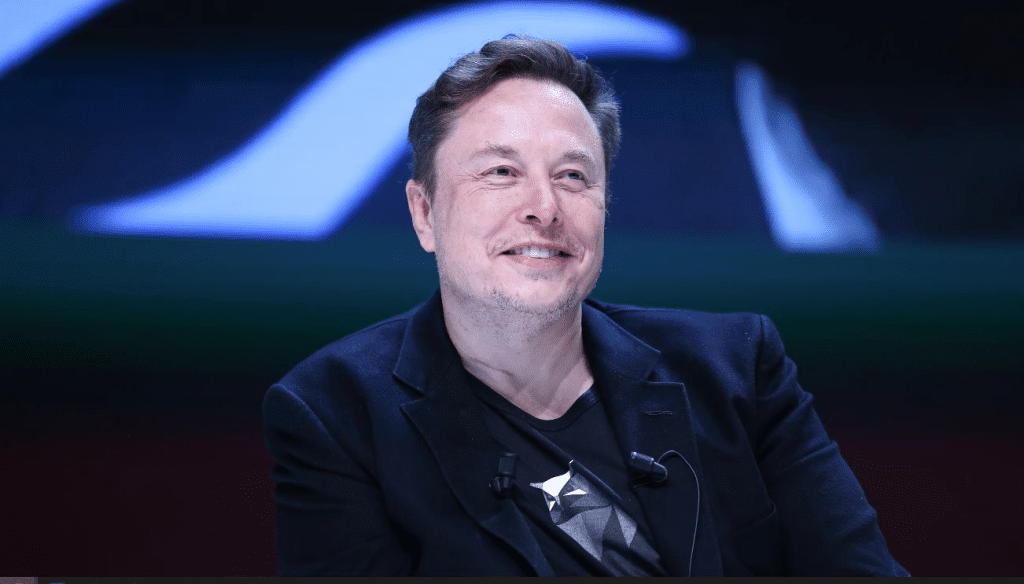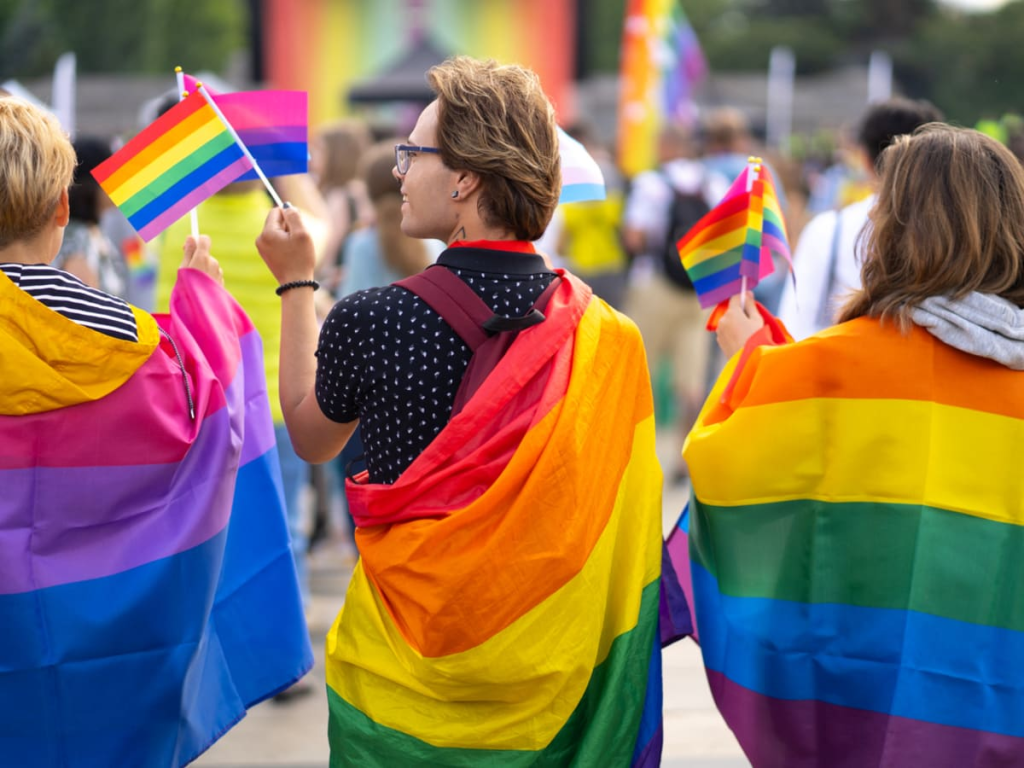In a bold move that has sparked widespread reactions of both support and condemnation, Elon Musk, the visionary CEO of X (previously Twitter), has decided to permanently block all content related to LGBTQ+ Pride on the platform. This announcement, made earlier this week, has ignited a heated debate across social media and in the public sphere, highlighting the growing tensions between the principles of free speech and the protection of minors in the digital age.

The Rationale Behind Musk’s Decision: A Focus on Child Safety
Elon Musk publicly explained the reasoning behind this controversial action, emphasizing that while free speech is a fundamental value, it should not come at the expense of the safety and well-being of children. In a tweet that quickly went viral, Musk stated, “We must prioritize the safety of our children. If this means restricting certain content, it’s a necessary sacrifice to ensure that children grow up in an environment suitable for their age.”
Musk’s stance reflects a viewpoint gaining traction in certain segments of society, which argues that some LGBTQ+ topics may be too complex or inappropriate for younger audiences. Musk has made it clear that his decision is not an attack on the LGBTQ+ community but rather an attempt to create a safer digital space for young users, ensuring that the content they encounter aligns with their age and developmental stage.
Mixed Reactions: Support from Parents and Conservative Groups
The decision has been met with mixed reactions across various demographics. Many parents and conservative groups have applauded Musk’s actions, viewing them as a necessary step to protect children from content they believe could be inappropriate or harmful. For these groups, the move aligns with their concerns about creating a more controlled and secure digital environment where parents can feel confident about the content their children are exposed to.
Supporters of Musk’s decision argue that it is essential to establish clearer boundaries on digital platforms, ensuring that younger audiences are shielded from potentially adult-oriented material. They emphasize the importance of providing parents with more control over their children’s online experiences, particularly in a world where social media and digital content are ever-present.
Opposition from LGBTQ+ Activists: Concerns Over Censorship and Civil Rights
On the other hand, the move has sparked strong opposition from LGBTQ+ activists and advocates for civil rights. Critics argue that blocking Pride-related content amounts to censorship and directly undermines the visibility and rights of the LGBTQ+ community to express and celebrate their identity. One activist commented, “Protecting children should not involve silencing entire communities that are fighting for acceptance and equality.”
For many in the LGBTQ+ rights movement, the decision to block Pride content is seen as a step backward in the ongoing struggle for recognition and inclusion. They argue that the suppression of such content is not only an infringement on freedom of expression but also a denial of the rights of LGBTQ+ individuals to share their experiences and culture publicly.
Global Reactions: A Controversy That Spans Borders
This decision has transcended national borders, sparking debates in countries around the world about the role of tech platforms in regulating content. In nations with conservative views on LGBTQ+ issues, Musk’s decision has been received positively, with many seeing it as a victory for traditional values. Conversely, in more progressive countries, the move has been widely condemned as a setback for the fight for LGBTQ+ equality and human rights.
This international divide highlights the differing cultural perspectives on LGBTQ+ issues and the role of social media in shaping public discourse. While some countries may view Musk’s stance as protecting children, others see it as infringing upon the rights of marginalized communities.
A Comparison with Other Platforms: How Far Should Tech Companies Go in Regulating Content?
Platforms such as Instagram and Facebook, known for their efforts to create inclusive spaces, have been frequently mentioned in comparisons with Musk’s decision. This has sparked a larger discussion on the extent to which tech companies should regulate content, especially when it comes to protecting young users from potentially harmful material.
While some believe that platforms should have a duty to ensure a safe environment for children, others argue that censorship could undermine the free exchange of ideas and the ability of marginalized communities to advocate for their rights. The growing influence of digital platforms in shaping societal norms makes this debate all the more urgent.

Elon Musk’s Leadership Style and Its Impact on X’s Content Moderation Policies
This is not the first time that Elon Musk’s leadership style has caused a stir in the digital world. His bold, sometimes controversial decisions have shaped the evolution of X into a platform where free speech and content moderation are constantly debated. Musk’s approach to managing X has often been marked by a willingness to take risks and challenge established norms, but his decision to block Pride-related content represents a new chapter in how content is moderated on the platform.
This move has raised important questions about the future of online discourse and the role of tech companies in determining what content is deemed acceptable. It also highlights the growing tension between protecting users, particularly children, and upholding the values of free speech and expression.
The Ongoing Debate: Protecting Children vs. Upholding Free Speech
As this situation continues to evolve, the tension between child protection and free speech will remain a crucial topic. Musk’s decision poses a significant challenge: how to balance the need to ensure the safety of vulnerable individuals with the preservation of diverse opinions and the right to freedom of expression. This debate underscores the complexities involved in content moderation, particularly on platforms with a global reach.
A Global Conversation on Censorship, Child Safety, and the Future of Free Expression
Elon Musk’s decision to block LGBTQ+ Pride content on X has ignited a global conversation about censorship, child safety, and freedom of speech. While some view this measure as a necessary step to protect children, others see it as an attack on the fundamental rights of the LGBTQ+ community. As the digital world continues to evolve, the implications of these decisions will set important precedents for how tech platforms manage content and navigate the delicate balance between protecting users and respecting free expression.
In the coming years, it will be crucial to monitor how these dynamics unfold and what impact they will have on the future of digital discourse, social media inclusivity, and the rights of marginalized communities. The decisions made today will shape the landscape of online content regulation for generations to come.


